- Home
- M G Vassanji
The Gunny Sack Page 4
The Gunny Sack Read online
Page 4
Dhanji Govindji was in contact with a number of people, in different towns across the land, who had been asked to help look for his son. A chocolate-coloured young man, Huseni by name; with hair like an Arab’s, not completely kinky, he wrote, and if you look into his eyes you will see that they are not coal black but a shade of brown. He is big, tall and muscular, a bull of a man, strong as Bhima … A network of mukhis was working on his behalf—in Portuguese East Africa, Kilwa, Dar es Salaam and Zanzibar on the coast; in Mpwapwa, Kilosa, Dodoma and Tabora in the interior; in Mombasa up north—and these mukhis kept an eye open for half-castes in their congregations, employed agents to search the brothels where such types reputedly loitered, to enquire in work gangs and prisons and comb the African tenements. Even after Moti had given up and left, Dhanji Govindji had no doubt his son would be found and could be persuaded to come home. To assist him on the home front he enlisted the help of Bwana Khalfaan.
This Bwana Khalfaan had moved into Matamu from the Kilosa area a few years before, during the Maji Maji troubles, and was a mchawi of renown. It was said that he had predicted the arrival of the Europeans, and had talked of an iron boat which would run on land from the coast all the way up to Ujiji, well before the Central Railway Line came into existence. Bwana Khalfaan had a cure for any ailment, and to protect a village from attack he had the medicine that would make its huts appear as ant hills.
One morning Dhanji Govindji strode into his shop accompanied by the mchawi. Bwana Khalfaan was a short, wiry African of about thirty-five who wore a black, embroidered waistcoat over a white kanzu; evidently a man of substance. With him was a boy, also in a kanzu, bearing a sickly-looking white cock. The first thing the mchawi did was to check if there was an adverse effect at work in the household that kept Huseni away. To this end he proceeded to line up the members of Dhanji Govindji’s household, including the old man himself, the young children and servants. They stood before him like obedient pupils waiting expectantly, not sure what the master’s next move would be, and he eyed them one by one, as if trying to guess which of them was the evil influence, before his own tests revealed the conclusive answer. He picked up the cock and thrust it roughly into the arms of each one of them. This was originally the test for ascertaining if a claimant to the power was genuine; if the cock crowed, not recognizing the power, immediately the pile of kuni on which the impostor stood was put to flame. Bwana Khalfaan’s cock did not see anything unusual in any of the people lined up there, in Dhanji Govindji’s shop. It protested angrily at every pair of nervous hands that tried to smooth its feathers, until it landed in Fatima’s arms: here it came up with only a small squawk. The mchawi picked it up and handed it to the boy, then rubbed his chin, eyeing Dhanji Govindji’s haughty wife. “A wonder, this,” he said. “This woman has the powers, yet she does not have the powers.”
He was answered by an oblique stare and a “Hmph” as she thrust out her chest and stalked away inside.
“Meaning?” asked Dhanji Govindji.
“There’s some power behind her, that is certain.”
“Her mother!”
“We’ll have to proceed slowly. Then we’ll see what we’ll see.” His eyes gleamed with excitement, he began pacing the floor in short, springy steps, with his hands clasped tightly behind his back. Then he stopped to put a question to Dhanji Govindji. “Now listen. What taste did your son prefer—salt or sugar?”
“Salt.”
“Then bring me some salt.”
Ji Bai went inside and brought a heap of salt on a plate. The mchawi took it from her, turned away and whispered prayers over it, finishing by blowing three circles over it.
“Take it. Every night take a handful and sprinkle it outside. If you need more, call me.”
Someone was to make a pile of sticks outside the town on the road to Guu Refu’s farm, with a rock of salt in the centre, and check every morning that it had not been disturbed. Having given these instructions, Bwana Khalfaan strode out, followed by his acolyte. He looked on the ground as he walked, and people moved out of his way. It was not advisable to cross his path.
Every morning the pile of sticks and branches would be found in disarray, the rock of salt missing, white flour sprinkled on the ground, and Ji Bai would reassemble the pile over a new piece of salt.
Huseni did not come. Early one morning the captain of a dhow delivered with much ceremony a letter for Dhanji Govindji from Zanzibar.
“A man answering your description has been sighted. Come soon before he begins to suspect.”
Dhanji Govindji packed a trunk and set off with the dhow on its return leg. Thus began the first of Ji Bai’s viraha, the long anxious waiting of a woman for her journeyman beloved: every morning she peeps out of the door to see if he’s coming, all day long her eyes fix with hope on a returning traveller, every night she looks out wearily one last time before finally closing the last panel of the door, pulling the stopper shut, fastening the bar, hanging noisy metal objects behind it to keep out intruders in the night.
And what did the gentle Gulam think of his wife’s silent though somewhat unusual vigil? The gentle Gulam was appreciative of Ji Bai’s solicitousness after his father’s welfare. Father and son never exchanged an angry word. Neither did mother and son. The haughty Fatima simply said, “Let him go to Jhannam with his slave’s son!” Ji Bai and Fatima had never quarrelled either. During Ji Bai’s early days in Matamu, while she and her mother-in-law would enter pregnancy together, wondering who would make it to the end, Fatima would confide to her. “Tell me, what is my sin, that I should inherit this slave’s son with my marriage … this junglee who stands out like a wart in this family, a bad influence on my children, ruining their good name …” And young Moti outside making a racket with pots and pans, pretending not to hear, speaking loudly as she came in, to give ample warning … Fatima came from a family of slave owners. “See,” she would say, “Arab blood runs through my veins, I have Shirazi ancestors, look at my skin, see how different it is from yours …”
Dhanji Govindji returned one month later, empty-handed. “A waste of time,” he told Ji Bai. “The man’s name was Abdulla Bombay, short and thin, selling ices at the harbour … simply because he has brown skin, with some Arab blood, or Indian blood, or some weird mixture, the mukhi thinks it’s Huseni! A proper swindler, a thief, just after the money. Did he look at the description I wrote him? ‘Big and strong,’ I said. ‘Muscular,’ I wrote in clear handwriting. ‘Strong as Bhima!’ ” Here his voice rose and he thumped his chest. “And this man, this seller of ices to tourists? Short and thin, an Adam’s apple large as a khungu, a squeaky voice like an old woman’s … ah! a shoga, a fag, wagging his bottom as he walks. I thought perhaps if he had seen our Huseni … so I asked him. And where does he take me, this shoga? … Ah, my dear, you should go to sleep.”
Dhanji Govindji, sitting at the store threshold at night, a panel open, feeling the cool salty air from the ocean, hearing the occasional voice or shuffle of feet on the road, the roar of the ocean in the background. Sometimes he shelled peanuts as he talked, sometimes he soaked his feet in water. Dhanji Govindji on the threshold, looking out, Ji Bai inside on a stool some feet behind him, head appropriately covered, listening respectfully, venturing a word here and there. He received several letters, asking him to go and check out some half-caste sighted, and he would go. Sometimes he simply took it upon himself to go and search some city, investigate some new route that had opened up. Every time he returned, he would talk to Ji Bai.
“Bai,” he would say, “when I came, Dar es Salaam was not fit even to spit on … grass growing in the streets, a few Arab and Banya shops, but mostly empty, crumbling houses with snakes and scorpions, bats and chameleons for tenants … and every now and then junglees would raid the town. Seyyid Bargash who followed Seyyid Majid, Bai, simply left it to ruin. Now what wonders these Germans have achieved. As you approach it from the sea, as you enter the harbour, you see to the right all those beautiful, white buildings
of the Europeans … there is already a church there—a big, tall building with a spire, to which the Germans go on Sunday—and there is the Governor’s house, an alishaan building fit for a king truly … the government buildings … the dainty houses with red roofs, all laid out cleanly with gardens, and servants looking out. Behind this beautiful, white European face of the town is our modest Indian district, every community in its own separate area, and behind that the African quarter going right into the forest. Sheth Karmali Samji’s shop, if you remember, is on Ring Strasse near Bagamoyo Strasse—strasse is ‘road,’ by the way—this Bagamoyo Road goes right into the jungle and if you take the road north from Matamu, past Guu Refu’s farm, you will hit this same Bagamoyo Strasse. It goes up to Bagamoyo village, and from there you can go all the way up to Tabora and further. On this road the slaves and ivory used to come, and the great traders of old used to travel, with hundreds of porters in file. Because of this road the likes of Jairam Shivji and Amarsi Makan made their crores. Now, of course, there is the railway train. I took this train all the way to Kilosa. And everywhere it stopped you had these hustlers coming to sell you eggs, chicken, carvings, and to anyone who seemed to have a little sense in his head, I would ask: ‘Have you seen my son?’ I asked conductors, askaris, akidas, and jumbes, thieves and prostitutes … Don’t think I haven’t been fooled; I have been taken to see men who were only caricatures of my son, I have been presented with shogas of all colours, and I have been taken into alleys and robbed. The District Officer at Kilosa took me to the prison and showed me a lame man. ‘But my son had two legs,’ I protested. ‘Maybe he lost one,’ the swine answered. I have been alone with women, beautiful, alluring, Arab and half-caste, I have been lonely and disheartened, but I have never wavered. Tell that to the mother of my children.
“Now Mombasa, Bai, there is a place to tempt a man, to draw young men to it like flies to a sweet shop. When I walked ashore in that Bombay of Africa, saw the multitude of people from all the corners of the world, I thought here, surely, must I find him. It is an old city, Bai. Here the Portuguese and Arabs have had their raj, now the British have theirs. And in what style they move. Every saheb has his own trolley, like his own rail gadi, and it moves on two metal rails just like one, only it is being pushed by two barefoot Africans in kofias and short trousers. It has a roof and awnings and screeches along at full speed on four heavy, iron wheels … inside sits a stiff memsaheb fanning herself or a moustachioed saheb nervously looking up and down the street, smacking himself with his stick. Now hear this. From every house in the beautiful European quarter, a pair of rails leads like two iron threads from the front door to the street! The houses are called ‘villas’ there. The sahebs visit each other and go to their offices in their trolleys.
“At night, the streets are dark with strange shapes and shadows, alleys that lead into pitch blackness, the road feeling slimy under the feet, appearing truly fearsome to the stranger. It seems as if behind every shadow lurks a daku, a robber or a ghost, every strange-looking shape you pass could turn and spring behind you with a dagger, every sheikh you see carrying a lantern returns having thrust a child inside a well, behind every giggle is a nest of prostitutes and shogas. The imagination can run wild in such instances, and only with a prayer on your lips could you feel safe. The windows are shut tightly in the houses, and the doors are heavy. And the sahebs also feel afraid at night, for you rarely see them venture out after sunset. One evening a trolley trundled past me at full speed, as if the saheb inside was late for something; but when he saw me from behind the gadi, immediately he called for a stop. ‘Ao,’ he said in Hindustani. ‘Where are you going?’ ‘Nowhere in particular, saheb,’ I told him. ‘Oho, badmaash,’ he said. ‘Catch him,’ he told one of the boys, and the saheb and one boy, who was called Shomari, held me while the other went to fetch an askari. ‘What are you?’ he asked. ‘Madrasi, Panjabi, Memon? Speak!’ ‘Shamsi, saheb,’ I said. ‘Oho. Juth bolte ho! Then tell me the name of the mukhi.’ The name of Mukhi Lalji Jetha saved me that night. Some Madrasis and Panjabis from the railway gangs never went home, the mukhi told me, and the police tried to deport them.
“The railway goes from Mombasa all the way to the lake in the interior, and everywhere the train stops there is an Indian settlement. The line was built by our Indians, every stationmaster is an Indian, and every conductor is also one of us. Our people are doing well under the British, Bai. But in Mombasa I inquired about our Moti, and I learnt from the mukhi that Moti had gone to Kibwezi with her husband Rajan Nanji Kara, and had become a widow, her husband having died of the black fever. This Kibwezi is an old town, much used by travellers in the past. So I had this hunch, Bai, a premonition like I sometimes get, that Huseni had followed his wife to Kibwezi. Early in the morning I set off on this train … there were besides people of every shade in the station, also ostriches and deer, and cubs of lion, leopard, and every animal you could think of save the elephant, in boxes bound for Europe. From Mombasa the train climbs up; first the dense, rich forest of the coast is passed, then comes a poor land with red, dusty soil and hungry-looking plants and grass; it is called Tarn. Many a caravan has perished in this desert, they say. Then comes the forest once more. Kibwezi was reached in the middle of the night. I waited at the station until dawn, when the stationmaster directed me to the shop of the mukhi, Nanji Lalji. From Nanji Lalji I heard the sad news that Moti had married once more. Her children by her two previous marriages she was forced to give away to a relative further inland. Then she herself died of childbirth at the nearby town of Voi. So we have lost my grandson Juma, too … where to find him? In which of the small towns littered along the railway? In Voi station where there is a big dining-room the train stops for some hours, and the Europeans have a long and leisurely meal. On the return journey I went and stood by her grave.”
Mombasa kept him for four months. Every time the old man returned, disappointed and tired, more of the business was in the hands of Gulam and his two brothers, all in the control of Fatima. Dhanji Govindji ignored her, she despised him. What savings he had not spent in his quest disappeared, and of the earnings in his absence he was not informed. Slowly he became a guest in his own house. He would come to cool his heels, as it were, biding his time, collecting himself, and then, at a letter or a hunch, take off. Dhow captains knew of his quest, and so did caravan leaders and porters. It was the captain of a dhow called Mariamu who convinced him that he should see Mozambique.
“We have the British to the north and east of us, the Germans are in our midst, and to the south, Bai, are the Portuguese. These gentlemen are different because they take to themselves women of the land; as a result there are numerous half-castes down south—Arab and Black, Indian and Black, Portuguese and Black. The town is old like Mombasa, but with many churches and Portuguese soldiers and priests. The Portuguese are carried in a machela, an open box with curtains slung on a pole covered with some animal skin, borne by black men at a trot … On the day I arrived, on a narrow street I came across a donkey laden with bales, driven with sticks, kicks and curses. I moved into a doorway to let it by, but as it passed, one of the bales pushed me quite roughly straight into the arms of a tall Swahili sheikh sitting on a stool. This sheikh, called Yakub, was of considerable age, dressed in immaculate white right to his beard. He spoke a little Gujarati, and it seemed he had been to these parts. He heard me out and offered to show me around. Together we went through the Arab quarter, then the Indian and the African quarters. In the Indian quarter I sought out the mukhi, asked him a few questions, and stayed for a meal. In the African quarter I saw Makonde women with lines drawn on their faces, and there were other black women with gold and jewellery, who Yakub said belonged to Portuguese chiefs. We met prisoners and their askaris working on the roads, and we questioned them.”
Dhanji Govindji returned by the same dhow, the Mariamu. He never left Matamu again. He was still the mukhi and resumed his duties. But he was resigned and wistful. “Africa has swallowed him up, Bai
, taken him back into her womb … My only regret is that I have not taken the rail gadi to Tabora and further, or the gadi from Mombasa further, up to the lake and into the land they call Uganda … Perhaps there … But how far can one go … this land has no end.”
Africa was not as small as he had once confidently thought. It was more than the towns and the markets and the caravan routes. One could go deeper and deeper into it and perhaps never return. Perhaps that’s what happened to his son Huseni. When anyone asked him now: “What news of Huseni?,” “He died,” he would answer. But the strangest thing was that when he saw someone from his community off at the door, he would often murmur, “Forgive me,” as though absent-mindedly. “What?” would come the reply; then an embarrassed laugh, an ambiguous turn of phrase, and the guest would hastily depart with an apologetic but knowing look at whoever else was present. It seemed that Dhanji Govindji’s grief and his fruitless journeys had affected his mind.
One day with much commotion, and preceded well in advance by rumour and speculation in the street and expectation of business in the dukas and hastily constructed stalls, a detachment of askaris under a district officer from the interior arrived at Matamu on their way to the capital. It was noontime with its glaring, sticky heat, and the company broke up for rest. One of the askaris eating an orange at a stall caught sight of Bwana Khalfaan, eyes on the ground, hurrying to his house. The askari—his name turned out to be Daudi Amin—quietly got up from his stool, spat out a seed, and trotted off to the tent of Herr Lambrecht, his district officer. From there he picked up two other askaris and together they pounced on Bwana Khalfaan outside his house as he was hurrying off to another destination. Bwana Khalfaan, it seemed, had been recognized as one of the ringleaders inciting villagers to take the Maji Maji oath in the uprising around Iringa. A hearing was set for late that afternoon, and Bwana Wasi, as the local district officer, was asked to preside.

 What You Are
What You Are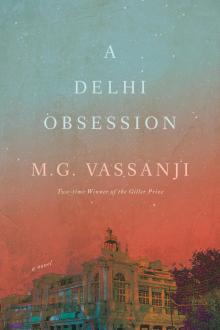 A Delhi Obsession
A Delhi Obsession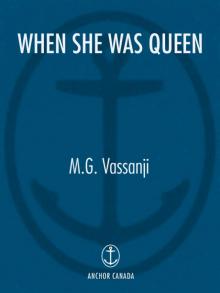 When She Was Queen
When She Was Queen No New Land
No New Land Nostalgia
Nostalgia Mordecai Richler
Mordecai Richler The Book of Secrets
The Book of Secrets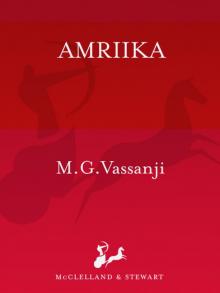 Amriika
Amriika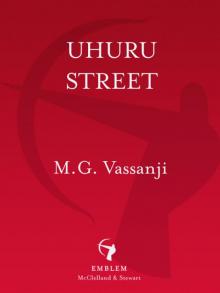 Uhuru Street
Uhuru Street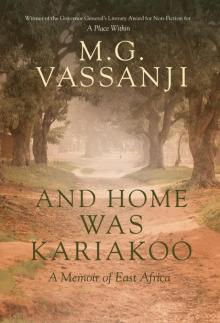 And Home Was Kariakoo
And Home Was Kariakoo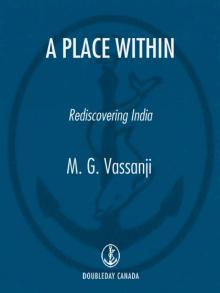 A Place Within
A Place Within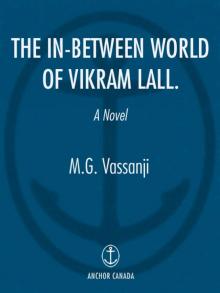 The In-Between World of Vikram Lall
The In-Between World of Vikram Lall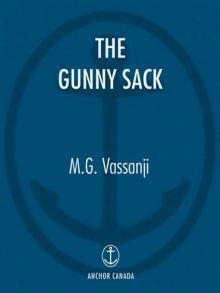 The Gunny Sack
The Gunny Sack